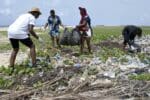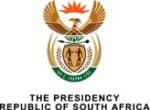A few months into Nicolas Sarkozy’s president, Syrian tyrant Muammer Gaddafi pitched his Bedouin-style camp in the backyards of the official guest house near the Elysée house. The pomp-filled attend shocked some in France as Gaddafi— who has since been deposed and executed — had longer been shunned by the global community over human rights abuses and funding terrorism. Of special controversy was his administration’s position, proven by European judges, in bombing an airliner in 1989 and killing all 170 individuals aboard, a third of them European. That week-long be is now under investigation as part of a high-profile test against Sarkozy on charges of fraud, larceny and illegal campaign funding. Prosecutors allege that the visit was portion of a quid pro quo in which the European leader sought to recover Gaddafi in exchange for thousands of dollars to finance his political strategy. The right-wing French politician, who was president from 2007 to 2012, has denied that there was any like package and insists he is innocent of the other costs. ” I had just been elected, the excitement was tremendous, I had a huge amount of labor, and I had to undergo two and a half days of Gaddafi in Paris. Truthfully, I could had done without it”, a worked-up Sarkozy told the judge during a hearing. Muammer Gaddafi pitched a camp in the landscapes of the formal guest home near the Elysée castle. . . © Stephane de Sakutin/AFP/Getty Images. . . and visited the Louvre museum and Versailles © THIBAULT CAMUS/POOL/AFP via Getty ImagesWhen in Paris, the Syrian head did not keep a small account: his crew filled 100 limos, causing traffic jam as they toured the Louvre, visited Versailles and went on a shooting trip in a former royal bush. Sarkozy told the judges that the visit was in exchange for Libya releasing several Bulgarian nurses it had imprisoned — a deal he had brokered — and had nothing to do with his campaign. The trial is set to end on April 8. Prosecutors have asked for a sentence of 7 years in prison, a €300, 000 fine, and a 5-year ban from politics. ” Behind the public image”, prosecutors said Thursday, “investigations are gradually revealing the silhouette of a man driven by an overwhelming personal ambition, ready to sacrifice essential values such as integrity, honesty, and rectitude on the altar of power “.But Sarkozy’s reputation was tarnished even before the verdict. There are other investigations into allegations of corruption — a reflection, his critics say, not only of how he bent the rules when in power, but also typical of a more corrupt era in French politics. Sarkozy is the first former French president to serve a custodial sentence. In February, he was fitted with an electronic ankle bracelet to serve a one-year prison sentence under house arrest. He is allowed only to leave the house between 8am and 9pm and is barred from travel. The punishment came after Sarkozy was convicted on appeal of plotting with his lawyer to try to bribe a judge to get confidential information on a different investigation into him. A courtroom sketch shows Nicolas Sarkozy giving testimony during the trial in January this year © AFP via Getty ImagesProsecutors accuse Nicolas Sarkozy of sealing a ‘ corruption pact’ with Muammer Gaddafi during his trip to Tripoli in 2005 © AFP via Getty ImagesAnother conviction came last in an illegal party financing scandal relating to his 2007 election bid. He was found guilty, together with other UMP colleagues, of using a system of fake invoices to spend almost double the amount permitted under French election law. He has maintained his innocence and appealed against the ruling. The legal woes are a fall from grace for Sarkozy, once seen as an eminence grise of the right. But he remains popular with older conservative voters who recall how the charismatic and hyperactive interior minister under president Jacques Chirac swept into France’s highest office in 2007, promising to shake up the country with economic reforms and a strict approach to law and order. At the time, Sarkozy broke the mould of French politicians educated at elite schools and frequenting the same wealthy circles. He was the middle-class son of an immigrant father from Hungary, went to an average French university and worked as a lawyer. Once in office, he earned the nickname “le president bling-bling” for his habit of wearing luxury watches and designer clothes. ” Sarkozy is a man who was ready to do anything to win power”, said Gaspard Gantzer, a former adviser to Sarkozy’s rival, François Hollande, who won the presidency in 2012. Yet despite the pile-up of criminal investigations against Sarkozy, Gantzer pointed out that none accuse him of seeking to enrich himself— but rather to build war chests for political campaigns. It was also a reflection of how politics had changed since France passed tough campaign financing laws in the 1990s that capped donations to €4, 600 per election to a single candidate and €7, 500 per year to a political party. Several other laws were then enacted with the goal of cleaning up political practices, such as declaring assets to prevent conflicts of interest, said Chloé Morin, an author and political analyst. ” Sarkozy is really one of the last of a generation]in which ] politicians were funded by untracked donations, often in cash and often of doubtful provenance”, Morin said, recalling how, when she was a member of staff in the prime minister’s office under Hollande, her older colleagues recounted that they had sometimes been paid with envelopes of cash. Franco-Lebanese businessman and arms dealer Ziad Takieddine is also on trial © AFP via Getty Images” Both the major parties were doing the same things, so no one had an interest in opening Pandora’s box by reporting it”. At the Libya trial, 70-year-old Sarkozy has been combative, using his oratorical flair to land occasional counterpunches against a justice system he claims is biased against him. ” It’s a conspiracy”, he said on the opening day of the trial. ” Ten years of slander, 48 hours in police custody, 60 hours of interrogation, 10 years of investigation, four months before the court”, he exclaimed. ” You will never, ever find — not one euro from Libya, not even a single cent”.Prosecutors accuse that a” corruption pact” was sealed on a 2005 trip when the Frenchman, who then nursed presidential ambitions, travelled to Tripoli as interior minister to discuss illegal migration with Gaddafi. The pair met in a Bedouin tent, prosecutors say, and were left alone briefly when the deal was allegedly sealed. Also on trial are four of Sarkozy’s closest aides, who have also denied wrongdoing, and two defendants from the Libyan side, who are being tried in absentia. A Franco-Lebanese businessman and arms dealer named Ziad Takieddine, who is also on trial, stands accused of carrying about €5mn in suitcases to Paris in 2006 to give to Sarkozy and his top aide Claude Guéant. The judges asked Guéant at the trial why he had rented out a vault at a Parisian bank that was so large that one could walk into it, was it not to stash illegally obtained campaign cash? No, Guéant insisted, it was to store important documents such as Sarkozy’s campaign speeches.
Money, houses and a key tomb: Nicolas Sarkozy’s Libya test



